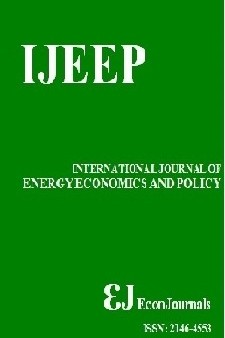Testing the Shock Effect of Some Policy Variables on Electricity Generation in Nigeria
Testing the Shock Effect of Some Policy Variables on Electricity Generation in Nigeria
Energy has been adjudged as the source of economic growth and wealth, the basis of economic and political controversy, technological inventions and innovations, and the basis of an epochal challenge global environment. This study examined the shock effect of some causative factors influencing electricity generation in Nigeria for 46 years beginning from 1970. The objective of the study is to investigate the effect of system shock on electricity generation in Nigeria. To achieve this, the study employed the impulse response function and variance error decomposition approaches through the Vector Error correction model. The study used the approaches to capture the impulse response of the variables and the variance error decomposition to obtain the reaction of the variables to errors committed in forecasting them. The study found no significant relationship between observed variables and electricity generation in the short run. There is a unidirectional causality running from electricity generation to economic growth, installed capacity and gas consumption and an independent causality between electricity generation, electricity consumption, price of electricity, and rainfall. The responds of electricity generation to shocks from other variables in the model are relatively low and sluggish. In forecasting electricity generation, error due to gas consumption is highest followed by error due to installed capacity of electricity. The study recommends the increase in electricity generation through increased installed capacity of electricity, electricity consumption, and price of electricity, economic activities, gas consumption and the construction of small hydro generating stations in all local government areas of the country.
